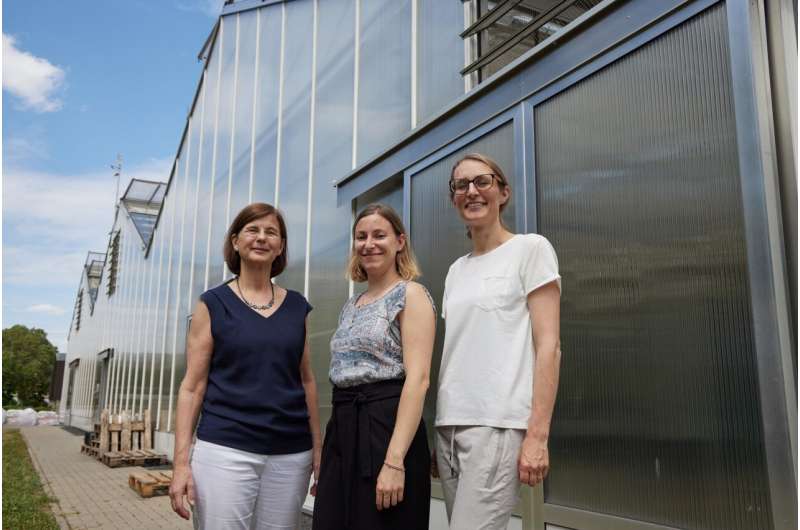This article has been reviewed according to Science X's editorial process and policies. Editors have highlighted the following attributes while ensuring the content's credibility:
fact-checked
trusted source
proofread
Study: When introducing bioeconomy, get people affected on board first

Innovative production methods are needed in order to tackle global challenges such as climate change, population growth and ecosystem loss. This has put strategies for a sustainable bioeconomy that place greater emphasis on using renewable raw materials firmly on the political agenda, both in Europe and around the world.
When pursuing strategies of this kind, however, it is important to get the people who will be affected on board first. This is the finding from a study that three researchers from the Institute for Food and Resource Economics at the University of Bonn have recently published in the journal Technology in Science.
In their study, titled "Don't forget the locals: Understanding citizens' acceptance of bio-based technologies," the three Bonn-based researchers looked at how accepting the public was of two bio-based technologies—biorefineries and aquaponics—and what factors influenced their degree of acceptance. They wanted to establish people's general views on these technologies and how their opinions would change if facilities that use the technologies moved in "next door." The researchers also explored the extent to which acceptance of these technologies varied depending on whether or not the people lived in a region affected by structural change, such as the Rheinische Revier.
Green alternatives to fossil fuels
Aquaponics is a technique that combines breeding aquatic animals like fish, crabs and shrimp in a tank ("aquaculture") with growing crops such as tomatoes or herbs in water ("hydroponics"). Bacteria are key players in the process, as they are capable of converting the ammonia excreted by the fish into nitrates, which then provide nutrients for the plants. Excrement from fish farming is thus turned into plant fertilizer, creating a loop. A biorefinery is a facility that processes biomass as comprehensively as possible into various products including chemicals, materials and (bio-)energy. It works in a similar way to an oil refinery, which splits crude oil into its individual components and thus enables each of them to be put to use.
The study saw nearly 2,000 people take part in an online survey, half of whom lived in the Rheinische Revier. As one of Europe's largest lignite mining areas, it is currently being transformed into a model region for the bioeconomy and sustainable management as part of the phase-out of fossil fuels with the help of German government funding. Researchers from the University of Bonn have been actively involved for some time now in various research alliances here that are supporting this process of transformation.
The problem of 'NIMBYism'
The study authors then compared the respondents' answers on their acceptance of the relevant technologies becoming established in Germany in general and on their nearest industrial estate. It soon became clear that "NIMBYism"—NIMBY standing for "not in my back yard"—is also an issue when it comes to bio-based technologies. Although many people are open to the idea of "green" industry as a basic principle, they are less keen to have it right down their street.
Contrary to the researchers' expectations, the degree of acceptance expressed for both technologies was lower in the Rheinische Revier than in the rest of North Rhine-Westphalia. One explanation might be that the people of the Rheinische Revier, whose lives have been shaped by many decades of lignite mining, react with greater sensitivity to new developments and that the impending structural transformation into a bioeconomy is more "real" for the locals in this part of the world, where tangible plans for a model region are already in place.
The researchers found that whether or not people are accepting of new technologies they know little about—such as biorefineries and aquaponics—mainly depends on what feelings and emotions these technologies evoke in them. While the acceptance of aquaponics facilities was influenced most strongly by positive feelings such as happiness and hope, negative sentiments such as fear and concern played a greater role in the case of biorefineries.
People's perceptions of the benefits and drawbacks associated with these technologies are also key: the results show that the former are often underestimated and the latter overestimated. Doctoral student Janine Macht says, "Many respondents were worried about biorefineries being massive structures, a bit like oil refineries, and associated these structures with bad smells. Actually, though, biorefineries can also be much more compact than large-scale ones and emit virtually no odors at all thanks to state-of-the-art filter technologies. But that's something you have to hammer home."
At the same time, says study director Prof. Dr. Monika Hartmann, there is also a need to highlight more clearly the advantages offered by the technologies, such as their benefit for the local economy, the creation of skilled jobs and the increase in the amount and types of food grown locally.
Communicating the benefits and risks of planned technologies and getting the public involved from an early stage could therefore help to dispel negative emotions and the perception of riskiness and inject more objectivity into debates on contentious issues.
More information: Janine Macht et al, Don't forget the locals: Understanding citizens' acceptance of bio-based technologies, Technology in Society (2023). DOI: 10.1016/j.techsoc.2023.102318


















